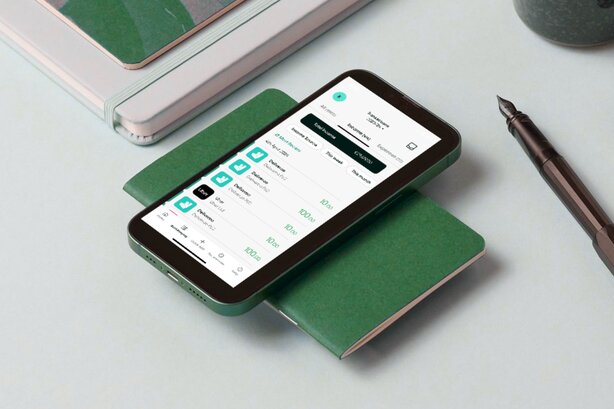Introduction to Income Reporting and MIF for Universal Credit Claims

Understanding how to report income and the implications of the Minimum Income Floor (MIF) for Universal Credit claims can be daunting. Whether you're self-employed or in a fluctuating income situation, navigating these aspects correctly is crucial for maximising your benefits and compliance.
The Pie Tax App can simplify this process by providing expert tax assistance. By using the app, you can accurately report your income and understand MIF, ensuring that you stay compliant with Universal Credit regulations. Let's delve deeper into the specifics of income reporting and MIF.
Understanding Income Reporting
To report your income correctly under Universal Credit, you need to include all earnings. This includes wages, money from self-employment, and any other sources. Accurate reporting ensures that your benefits are calculated correctly. If you're self-employed or have fluctuating income, understanding the Minimum Income Floor (MIF) is essential. The Pie Tax App can help simplify this process by providing expert assistance, allowing you to report your income accurately and stay compliant with Universal Credit regulations


What is Minimum Income Floor (MIF)?
The Minimum Income Floor (MIF) is a policy that affects self-employed Universal Credit claimants. It's based on what the government expects you to earn, ensuring that self-employment is not used to claim excessive benefits. If your earnings fall below the MIF, your Universal Credit payments will be calculated as if you were earning at that level. Navigating MIF can be complex, but the Pie Tax App offers expert assistance to help you understand and manage your obligations, ensuring your benefits are calculated fairly and accurately.

Recently, the government announced that the Minimum Income Floor (MIF) will be temporarily relaxed due to the pandemic. This change helps self-employed individuals facing income drops. 25,000 claimants benefited from this policy adjustment.Recent Changes to MIF

According to recent data, 80% of errors in Universal Credit claims are due to incorrect income reporting. Ensuring accurate income reporting is crucial for avoiding penalties and receiving the correct benefit amount.Income Reporting Statistics

Detailed Income Reporting Process
When reporting your income for Universal Credit, you need to consider all sources of earnings. For employed people, this includes salary, bonuses, and other employment-related payments. Those who are self-employed must include all business income and expenses to calculate net earnings.
The Pie Tax App can help track your income and expenses, ensuring that you submit accurate reports every time. Expert tax assistants available on the Pie app can guide you through the process, making it easier to remain compliant with Universal Credit regulations.
Understanding the Impact of MIF
The MIF can significantly affect the amount of Universal Credit you receive. For self-employed individuals, the MIF is calculated based on what the government expects you to earn. It assumes a minimum level of income, which may not always reflect your actual earnings.
Using the Pie Tax App, you can get expert guidance on how to navigate the MIF and ensure your reported income accurately. This way, you can avoid any potential issues and maximise your Universal Credit benefits.

Tips on how to Report Income and Understand MIF for Universal Credit Claims

When reporting income for Universal Credit, ensure you declare all earnings, including freelance work and bonuses, to avoid overpayments or penalties.Reporting Income Accurately for Universal Credit

The Minimum Income Floor applies to self-employed Universal Credit claimants. It assumes a minimum income level, impacting how much benefit you're entitled to.Understanding the Minimum Income Floor (MIF)

If your income fluctuates, promptly update your Universal Credit claim. This helps maintain accurate benefit calculations and prevents repayment issues later.Adjusting for Changes in Income

Fun Fact About MIF
Did you know? The MIF was introduced in 2013 as part of the Universal Credit rollout. Its primary aim was to incentivise self-employed individuals to increase their earnings and reduce dependency on benefits.
Tips for Accurate Income Reporting

You can quickly access your income tax online. The Government Gateway will help you to sign into your personal tax account. This allows you to access information about your tax position for previous and current tax years, as well as update your details with HMRC. It’s essential to keep your tax information up-to-date to avoid overpaying or underpaying income tax.
By regularly checking your income tax online, you can stay informed about your tax position and take any necessary action to claim tax rebates or correct errors. Knowing how much income tax you owe can help ensure you always pay the correct amount of tax and receive any tax rebates you’re entitled to.

Maintaining accurate and detailed records is crucial for income reporting. It allows you to provide precise information when needed, ensuring your Universal Credit claims are accurate.Importance of Record-Keeping

Using technology like the Pie Tax App can significantly streamline your income reporting. The app helps you track income and expenses effortlessly, providing accurate data for your Universal Credit claims.Utilise Technology for Efficiency
Summary
In conclusion, understanding how to report your income and the implications of the Minimum Income Floor (MIF) is vital for Universal Credit claimants. Accurate income reporting ensures you receive the correct benefit amount and avoid penalties. The Pie Tax App simplifies this process, providing expert tax assistance to help you navigate income reporting and MIF effectively.
Using the Pie Tax App, you can ensure compliance, maximise your benefits, and concentrate on your work without worrying about financial misreporting. The app assists in maintaining detailed records and offering personalised advice, making the income reporting process less overwhelming. The Pie Tax App is completely free to use, find out what features are included here:
How is Pie different?
Pie is the only app for self assessment with tools for bookkeeping, your live tax figure, easy tax returns and helpful advice when you need it.
Save £168 per year vs Quickbooks, file your self assessment today for free with Pie
FREE
£69
+£59.99
£149
Quickbooks
£168
per year7 features
TaxScouts
£169
per year4 features
Accountant
£450
avg per year5 features
* Optional add on
Frequently Asked Questions
What is the Minimum Income Floor (MIF)?
The Minimum Income Floor (MIF) is a policy that assumes a minimum level of earnings for self-employed Universal Credit claimants. It's designed to ensure that self-employment doesn’t lead to excessive benefit claims.
How do I report my income for Universal Credit?
To report your income, include all your earnings from various sources.
What happens if I report incorrect income?
Incorrect income reporting can lead to penalties and incorrect benefit amounts. Ensure you provide accurate information by keeping comprehensive records.
Can the Pie Tax App help with self-employment income?
Yes, the Pie Tax App is designed to help both employed and self-employed individuals. It assists in tracking income and expenses, ensuring accurate income reports for Universal Credit claims.
Are there any changes to MIF due to the pandemic?
Yes, the MIF has been temporarily relaxed to accommodate self-employed individuals facing income drops due to the pandemic. This change benefits approximately 25,000 claimants.




